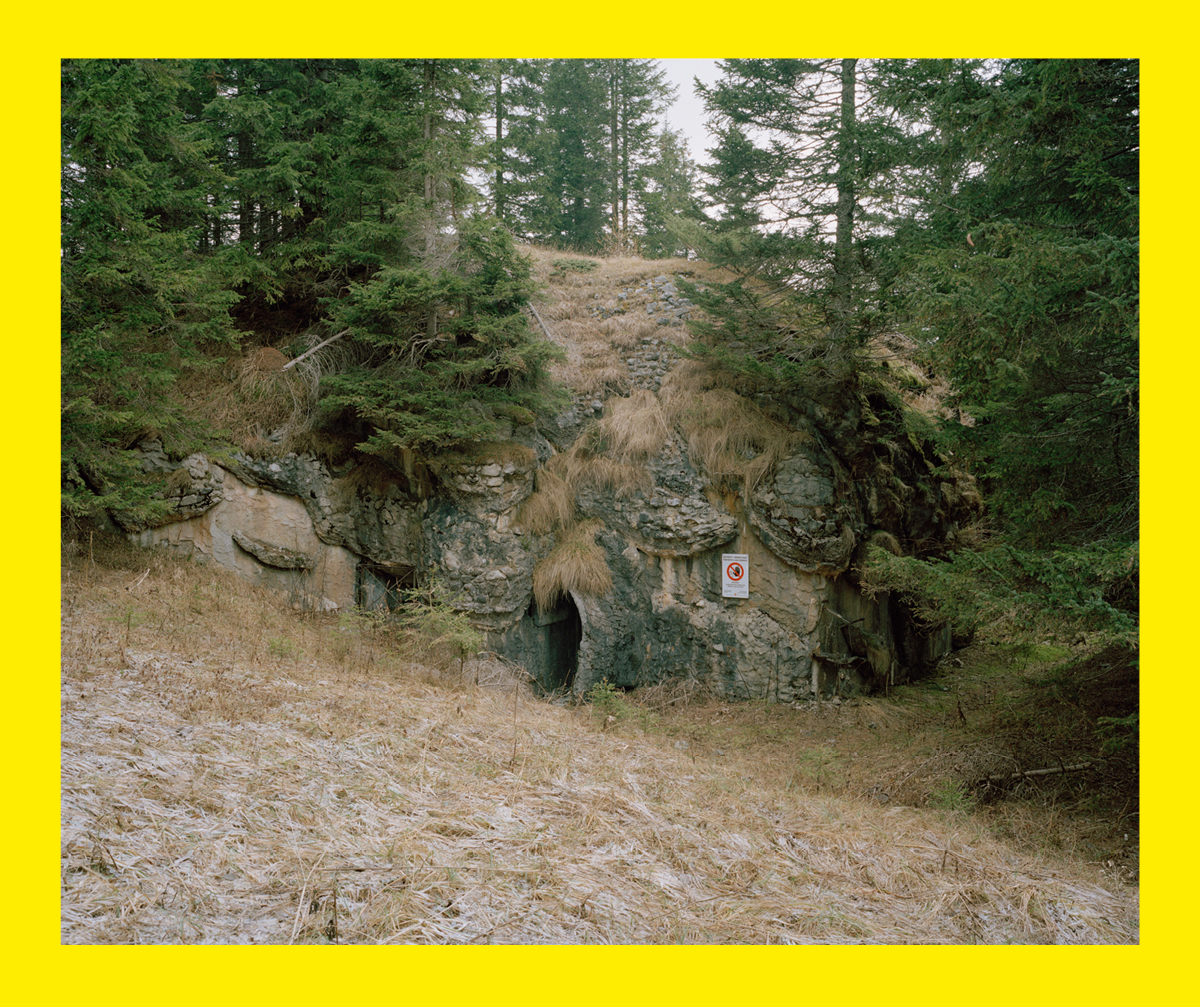Event: Talk with Vincenzo Pagliuca, Nina Ferrante, Alterazioni Video – Accademia dell’Abbandono
Talk (IT) 13.11.2024, 6 p.m.
With Vincenzo Pagliuca, Nina Ferrante, Alterazioni Video
Curated by AIDEL – Cristina Gallizioli and Marco Ferrari
Promoted in collaboration with Associazione Acropoli

OPERA 3 – Sbarramento Passo Monte Croce Comelico, 2018. © VINCENZO PAGLIUCA, Talk “Accademia dell’Abbandono” at Foto Forum 2024
During the lecture at the Foto Forum, we will meet Vincenzo Pagliuca, Nina Ferrante, and Alterazioni Video, who will open up a network of imaginations about unfinished buildings, abandoned spaces, and themes such as ruins and compost. Starting from a discussion on forgotten architectures, unfinished works, and evolving landscapes, we will engage in a dialogue on the themes of abandonment and rejection, seen as living spaces of possibility. Integrating various perspectives on the subject of liminal spaces, the talk will navigate between the visual, speculative, and the sharing of on-field experiences, intertwining different disciplines.
This talk curated by AIDEL is part of the program of the Accademia dell’Abbandono, a series of activities developed by the Acropoli association to rethink the theme of abandoned spaces in a plural, collective, and transformative sense. Abandonment is understood as a laboratory of coexistence, intersections, blurred boundaries, and an openness to diverse visions, actions, and projects related to space. By loosening control over places, the development of multiple authorships and actions is facilitated. Freed from human exclusivity, these spaces give rise to new authors, such as the species that begin to inhabit them or the forces that shape their changes, like water, air, and gravity, overturning the idea of human-made artifacts and exclusive anthropic design. Landscape and artificial matter blur their boundaries, mix, and allow us to read abandoned spaces as ecosystems, prototypes of an organic fusion of languages, processes, and contributions.
This stage of the project is part of a series of activities carried out with the support of the Autonomous Province of Trento, the Trentino-Alto Adige Region, and the Caritro Foundation, in parallel with the exhibition activity PaesaggiForti and the other activities of the public program of the Accademia dell’Abbandono.
Vincenzo Pagliuca is a photographer born in Italy in 1980. His artistic practice focuses on the territory and the marks left by human actions on it, with particular attention to the relationship between landscape and architecture in rural areas and the Italian periphery. His works have been exhibited in museums, galleries, and festivals across various European countries and are frequently published in architecture and visual culture magazines and platforms. He is the author of the books mónos (Hartmann Books, 2022) and Napoli Nord • Case Rom (The Velvet Cell, 2020).
Alterazioni Video is a collective formed in Milan in 2004, active between New York and Berlin. The collective members are Paololuca Barbieri Marchi, Alberto Caffarelli, Matteo Erenbourg, Andrea Masu, and Giacomo Porfiri. Together with them, we will discuss INCOMPIUTO (en. UNFINISHED). Unfinished projects are the ruins of modernity, monuments born from the creative enthusiasm of laissez-faire. The “unfinished” is characterized by the partial execution of a project followed by continuous changes, generating new bursts of activity.
Nina Ferrante is a scholar and transfeminist activist from Southern Italy. After completing a PhD in cultural and postcolonial studies with a dissertation on the homonormative visibility regime, her research expanded to queer ecopoetics, feminist sci-fi, and multispecies reproductive justice. Her latest work is titled Cosa può un compost. Fare con le ecologie femministe e queer (Sossella, 2022), which delves into a political, poetic, and poietic composting project to work within political ecologies from a queer and feminist perspective.
AIDEL is an architectural duo formed by Cristina Gallizioli and Marco Ferrari. Their research focuses on live architecture, temporary space, and light forms of inhabiting. Their ideas include dwelling in public landscapes, the body as territory, abandonment as a design strategy, soft architecture, the poetics of textile spaces, lightweight techniques for creating spaces, live architecture experiences, and residency as a tool for research.


